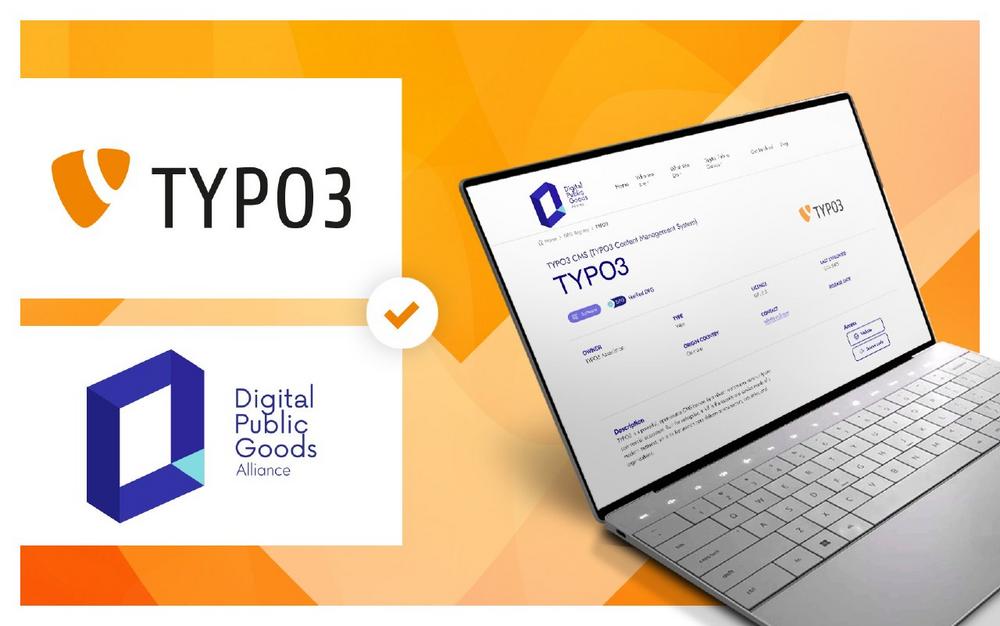-
TYPO3 v13 Certifications Now Available
We are pleased to announce that all official TYPO3 certifications are now available for TYPO3 v13. This includes updated exams for the four major certification types: TYPO3 CMS Certified Editor (TCCE) TYPO3 CMS Certified Consultant (TCCC) TYPO3 CMS Certified Integrator (TCCI) TYPO3 CMS Certified Developer (TCCD) With these updates, the TYPO3 Certification Team ensures that all exams remain aligned with current best practices, technical developments, and professional expectations within the TYPO3 community. Major Changes to the TYPO3 CMS Certified Consultant Exam As part of the TYPO3 v13 certification cycle, the TYPO3 CMS Certified Consultant (TCCC) exam has undergone a significant update to better reflect the evolving role of TYPO3 consultants and the needs of…
-
TYPO3 v13-Zertifizierungen ab sofort verfügbar
Wir freuen uns mitzuteilen, dass alle offiziellen TYPO3-Zertifizierungen nun auch für TYPO3 Version 13 verfügbar sind. Dazu gehören aktualisierte Prüfungen für die vier wichtigsten Zertifizierungstypen: TYPO3 CMS Certified Editor (TCCE) TYPO3 CMS Certified Consultant (TCCC) TYPO3 CMS Certified Integrator (TCCI) TYPO3 CMS Certified Developer (TCCD) Mit diesen Aktualisierungen stellt das TYPO3 Certification Team sicher, dass alle Prüfungen mit den aktuellen Best Practices, technischen Entwicklungen und professionellen Erwartungen innerhalb der TYPO3 Community übereinstimmen. Wichtige Änderungen bei der Prüfung zum TYPO3 CMS Certified Consultant Im Rahmen des TYPO3-v13-Zertifizierungszyklus wird die Prüfung zum TYPO3 CMS Certified Consultant (TCCC) einer umfassenden Aktualisierung unterzogen, um die sich entwickelnde Rolle von TYPO3-Beratern und die Anforderungen von realen Projekten besser widerzuspiegeln. Neues Prüfungsformat Ab Juni…
-
Meet BabesGotBytes: The Organization Empowering the Next Generation of Women in Tech
Meet Phindiwe (Phindi) Nqanqaru, a full-stack developer and the co-founder and director of operations at BabesGotBytes. Located in Cape Town, South Africa, Phindiwe is a driving force behind digital empowerment, creating opportunities for young women and girls in underserved communities to learn coding and tech skills. Through her work, she’s helping to break down barriers and ensure equitable access to the tech world. Phindiwe didn’t always work in tech and like many, the world of coding was completely foreign to her. She had novice level computer skills at the beginning of her journey and her background was primarily in retail. She was eager to build a career and hoped to break into…
-
BabesGotBytes: Für eine neue Generation von Frauen in der Tech-Branche
Lernen Sie Phindiwe (Phindi) Nqanqaru kennen. Sie ist Full-Stack-Developerin und Mitbegründerin von BabesGotBytes, wo sie als Director of Operations tätig ist. Phindiwe sitzt im südafrikanischen Kapstadt und ist eine treibende Kraft hinter dem digitalen Empowerment. Sie schafft Möglichkeiten für junge Frauen und Mädchen in unterversorgten Gemeinden, um Programmier- und technische Fähigkeiten zu erlernen. Mit ihrer Arbeit trägt sie dazu bei, Barrieren abzubauen und einen gleichberechtigten Zugang zur Welt der Technik zu gewährleisten. Phindiwe hat nicht immer im Tech-Bereich gearbeitet, und wie vielen anderen war die Welt der Programmierung völlig fremd für sie. Zu Beginn ihrer Reise verfügte sie über Computerkenntnisse auf Anfängerniveau und war hauptsächlich im Einzelhandel tätig. Sie wollte unbedingt Karriere machen…
-
At the Helm: TYPO3 President Leads the Open Website Alliance
In February 2025, TYPO3 Association President Olivier Dobberkau was appointed President of the Open Website Alliance (OWA). The term rotates between the alliance members, and TYPO3 is currently leading the alliance during its six-month presidency. The Open Website Alliance represents the content management systems (CMS) behind roughly 50% of all websites online today. The Open Website Alliance was co-founded by the Drupal Association, Open Source Matters (Joomla), the WordPress Project and the TYPO3 Association to promote the choice of open-source software and facilitate collaboration between free and open-source web content management projects, furthering openness, trust, and quality. A Place for Collaboration and Learning from Others Olivier has a clear vision of his role and the remainder of his…
-
TYPO3 Trademark Usage: What’s Allowed and What’s Not
The TYPO3 name is more than a label — it represents a global open-source community, a rock-solid CMS, and decades of shared innovation. As the TYPO3 ecosystem continues to grow, we want to make sure everyone uses the TYPO3 name respectfully and correctly — in ways that reflect well on all of us. Here’s a simple, updated overview of what you can do, what’s only for TYPO3 Association members, and what’s not allowed at all. What you can do — no membership required You’re free to describe your services, experience, or products using the word “TYPO3”, as long as: You’re speaking factually You’re not claiming endorsement or pretending to be official…
-
Why Accessibility Is No Longer an Option – But an Obligation
Starting June 28, 2025, certain digital services in the private sector within the EU must comply with European accessibility regulations. The EAA does not apply to all websites, but to specific sectors such as e-commerce, banking, and transport. These services will need to meet the accessibility requirements defined in the harmonized standard EN 301 549, which is largely based on the Web Content Accessibility Guidelines (WCAG). Public sector websites and mobile applications are already required to meet WCAG 2.1 Level AA, under a separate EU directive (Directive (EU) 2016/2102). This presents significant challenges for organizations and web developers. Around 20% of users have difficulties using the web. But accessible websites benefit people without disabilities too. Think…
-
TYPO3 Association Supports an EU Sovereign Tech Fund
At the beginning of this month, the TYPO3 Association submitted a letter of support for an EU Sovereign Tech Fund. The letter was sent to the European Commission alongside letters from fellow open-source CMSs Drupal and Joomla, and the open source community at large. The letter, signed by the TYPO3 Association’s President, Olivier Dobberkau, was based on a template formulated by OpenForum Europe, an independent open-source think tank based in Brussels, Belgium. It calls for the European Union to “take a proactive approach to digital resilience as a core component of civil protection and crisis preparedness.” The letter further explained the crucial importance of “investing in the security and sustainability of open source software (OSS).” Benefits…
-
Barrierefreiheit ist keine Option mehr, sondern eine Verpflichtung
Ab dem 28. Juni 2025 müssen bestimmte digitale Dienstleistungen im privaten Sektor der EU die Anforderungen an Barrierefreiheit erfüllen. Der Europäische Zugänglichkeitsverordnung (EAA) gilt nicht für alle Websites, sondern für ausgewählte Bereiche wie E-Commerce, Banken und den Transportsektor. Diese Dienste müssen den Anforderungen der harmonisierten Norm EN 301 549 entsprechen, die sich in weiten Teilen auf die Web Content Accessibility Guidelines (WCAG) stützt. Websites und mobile Anwendungen öffentlicher Stellen unterliegen bereits einer separaten EU-Richtlinie (Richtlinie (EU) 2016/2102) und müssen WCAG 2.1 Level AA einhalten. Das stellt viele Organisationen und Webentwickler vor erhebliche Herausforderungen. Etwa 20 % der Nutzer haben Schwierigkeiten bei der Nutzung des Webs. Doch auch Menschen ohne Einschränkungen profitieren von barrierefreien Websites. Denken Sie…
-
TYPO3 als digitales Gemeingut (Digital Public Good) anerkannt
Das Register für Digital Public Goods (DPG) hat das Engagement von TYPO3 für die Ziele nachhaltiger Entwicklung anerkannt. Dazu gehören der uneingeschränkte Zugang, Innovationen für das öffentliche Wohl und eine verlässliche Governance im Bereich Open-Source-Content-Management. TYPO3 wurde von der Digital Public Goods Alliance offiziell als Digital Public Good (DPG) anerkannt. Die Organisation verwaltet das Verzeichnis von Projekten, die den Zielen für nachhaltige Entwicklung der Vereinten Nationen folgen. Im April zertifizierte sie das Open-Source-Content-Management-System (CMS). Die Aufnahme in das Register ist eine Anerkennung für TYPO3s fortwährendes Engagement für gerechte Innovation, freien Zugang zu den eigenen Produkten und den klaren Einsatz gegen Diskriminierung. TYPO3 wurde 1998 gegründet und ist ein Open Source…










